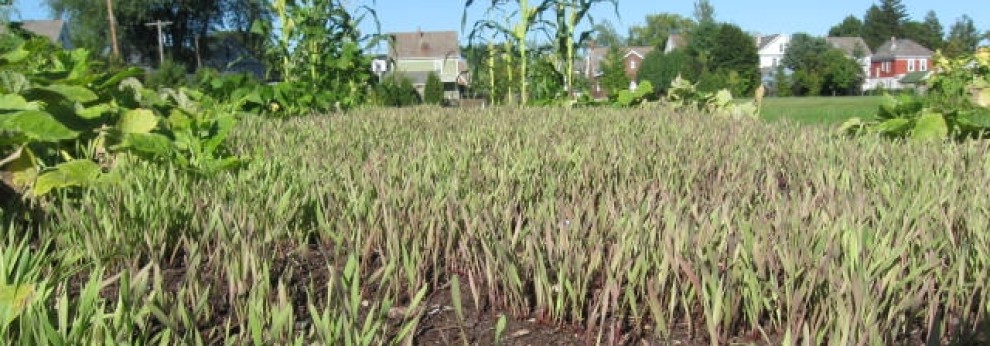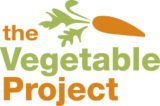 The coolest things the Vegetable Project does are probably also the most powerful things it does: We get kids who are convinced they do not like vegetables to give them a try. And we foster a sense of connection between field and table that is foreign to so many kids and adults these days.
The coolest things the Vegetable Project does are probably also the most powerful things it does: We get kids who are convinced they do not like vegetables to give them a try. And we foster a sense of connection between field and table that is foreign to so many kids and adults these days.
So what’s the big deal about these? Students, so many of whom are skittish about trying so many things, food-related or otherwise, tend to say, “Okay,” when we offer. Well, actually, they often first say, “No way am putting something that grows in the dirt in my mouth.” And then, moments later, upon seeing a friend chomping away, they lower their guard. And when they do that, especially if we’re in the garden, they’re often happily surprised.
It’s great, of course, if this encourages healthier eating habits than we commonly see. Even better, however, is the trust we can build with kids who are sometimes pretty darn wary of adults in their school lives. This is fundamental to teaching kids, and especially kids with great challenges in their lives. Spend a few hours in a school with large numbers of poorly performing students and you’ll also see large numbers of students who are very skeptical that educators even have their interests at heart.
So the way we look at it, the conversation around offering a taste, at least when we have set things up right, creates so much more openness to the kinds of things that are supposed to happen in school, but that so often don’t happen – you know, things like students saying, “Oh, that’s really interesting; I’d like to learn more.”
One of the essential pieces in this puzzle is active participation, to the extent possible, in the effort that gets us to the point of saying, “Hey, want a taste?” When kids touch the soil that plants grow in or care for the plants or even see tomatoes on the vine or carrots pulled out of the ground just before they’re brought to the table, it’s a totally different experience than hearing a lecture about healthy eating.
Will this make a difference in the algebra classroom or one of those other subjects that so many students view with dismay? Well, the Vegetable Project volunteers are happy to invest their time and energy in the prospect that the doing and touching and tasting and experiencing that we offer in the garden will make a difference in openness core academic classes. And with good reasons. Certainly, a more positive association with school and more trusting relationships with educators will help all around. And exposure to nature, to the extent that we foster that, helps lower stress levels and strengthen ability to sustain attention.
If tasting and cooking with what we grow can do even a little of that, it seems to us much more powerful than the popular coercive approaches to keeping students on track.
–Bill Stoneman


